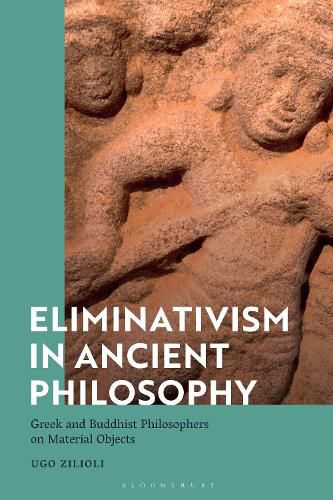Readings Newsletter
Become a Readings Member to make your shopping experience even easier.
Sign in or sign up for free!
You’re not far away from qualifying for FREE standard shipping within Australia
You’ve qualified for FREE standard shipping within Australia
The cart is loading…






A comparative investigation in the metaphysics of material objects in ancient philosophy, this book provides radically new insights into key themes and areas of ancient thought by drawing on Greek and Buddhist philosophies. Ugo Zilioli explicates the neglected tradition of philosophers who in different ways made material objects either redundant or ontologically dispensable in the ancient world. Chapters cover concepts such as nihilism, indeterminacy, solipsism and tropes, demonstrating how the philosophy of major thinkers Protagoras, Vasubandhu, Gorgias, Nagarjuna, Pyrrho, and the Cyrenaics advance our understanding of eliminativism. Zilioli's historical and philosophical reconstruction challenges traditional readings of key moments and figures in the history of thought, both Eastern and Western, as well as providing conceptual tools that are of interest not only to historians of philosophy but also to contemporary metaphysicians.
$9.00 standard shipping within Australia
FREE standard shipping within Australia for orders over $100.00
Express & International shipping calculated at checkout
A comparative investigation in the metaphysics of material objects in ancient philosophy, this book provides radically new insights into key themes and areas of ancient thought by drawing on Greek and Buddhist philosophies. Ugo Zilioli explicates the neglected tradition of philosophers who in different ways made material objects either redundant or ontologically dispensable in the ancient world. Chapters cover concepts such as nihilism, indeterminacy, solipsism and tropes, demonstrating how the philosophy of major thinkers Protagoras, Vasubandhu, Gorgias, Nagarjuna, Pyrrho, and the Cyrenaics advance our understanding of eliminativism. Zilioli's historical and philosophical reconstruction challenges traditional readings of key moments and figures in the history of thought, both Eastern and Western, as well as providing conceptual tools that are of interest not only to historians of philosophy but also to contemporary metaphysicians.